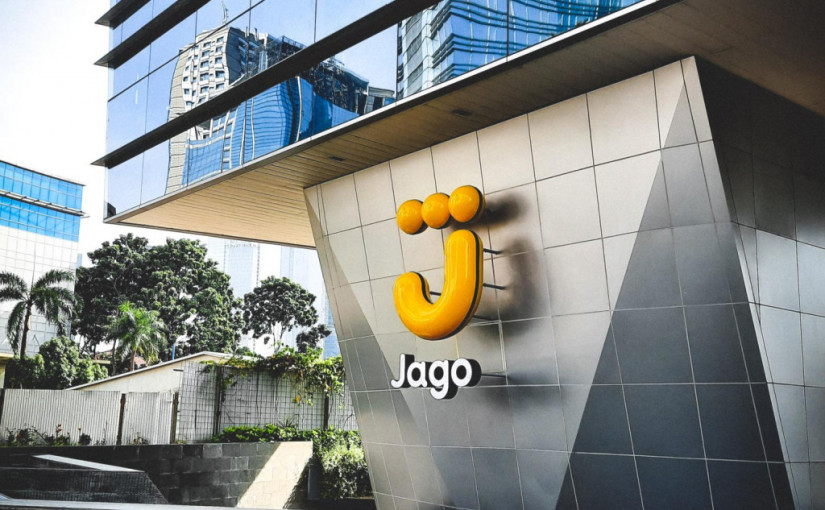The public is currently waiting for the commercialization of mobile banking PT Bank Jago Tbk (ARTO) to be launched in late March. Quoting Bloomberg, this application will offer some financial services, including loans. This service will be available in the Gojek application, therefore, millions of users can open accounts and manage their finances automatically.
When announcing Gojek’s arrival as a shareholder, Bank Jago emphasized its vision to connect financial and lifestyle solutions into one platform. Gradually, this vision has begun to be reflected in Bank Jago’s efforts to embrace digital platforms from various business verticals to enter its ecosystem.
Prior to Gojek, Bank Jago had collaborated with Akulaku to launch digital-based financing in November 2020. Another partnership followed, such as Smart Credit and Akseleran. This number will continue to grow from other business verticals, including e-commerce retailers, travel, entertainment, and insurance.
By embracing ecosystem partners, Bank Jago is showing a full picture in building a digital bank. This is also reinforced by the statement of senior banker and founder of Bank Jago, Jerry Ng, who highlighted collaboration as one of the keys to the development of a digital bank.
Organic vs Collaboration
In the 2021 Indonesia Data and Economic Conference session by Katadata, Jerry said that it would be difficult for banks to grow if they did not have a unique business model. Especially in the digital era, all services will eventually collaborate with other lines. One of the goals is to accommodate the emergence of a new digital literate generation. Unlike the situation 5-10 years ago, there was no digital service ecosystem such as Gojek, Tokopedia, and Traveloka.
Jerry said this collaboration can be a key strategy to accelerate the growth of the digital bank business. For instance, digital banks in China and South Korea are oriented towards ecosystem collaboration, therefore, they can pursue growth through products with a wider spectrum.
This has proven Bank Jago’s various strategic partnership actions of several verticals since 2020. Also, he said this model is different from digital banks in Europe and the United States which focus on developing life-centric services.
“We have to create a unique value proposition. What we are doing is combining the two as they both have advantages. The bank is no longer the center of the ecosystem, but it is part of the ecosystem made by consumers, in the end it is all about payment,” Jerry said.
This strategy is different from Jenius, he said, which is oriented towards organic development. Therefore, he rejects the notion that Bank Jago is a continuation of Jenius development. This assumption is often carried away as he used to be the President Director of BTPN, and also the brains behind Jenius development.
Looking at the competitive map, it seems that Bank Jago is the one which aggressively expanding its collaboration partners. However, this strategy is up for other banks that have transformed digitally. For example, the Bank Neo Commerce (BNC). In addition to Akulaku’s entry as a shareholder, BNC also collaborates with the fintech platform Crowdo for SME financing.
Challenges of tech-based bank
In terms of technology, Bank Jago claims that all of its service infrastructures is digital-based. Even Jerry dared to claim to be the first tech-based bank in the region. In becoming a digital bank, Jerry admitted to have several criteria in selecting a bank.
Bank Artos (before Bank Jago) was considered to meet the criteria as it did not have a legacy and only had few human resources. Based on the condition, his team can develop technology from scratch. This criteria indeed will fail if they use bank with big legacy. For example, a bank with thousands of branch offices.
“We consider Bank Artos fit as it is yet to develop the technology with only few human resources. In the case of Covid-19, all banks considered digitalization. We [Artos Bank] have no problem because the balance sheet is small. This makes it easier for us to make strategic decisions and the Bank Artos fit the criteria,” he explained.
He considered post-pandemic conditions could make the banking industry in Indonesia aware, banks have built too many branch offices. “Branches is not really necessary. I closed 600 branches once and it was not easy. Hence, changing the existing technology will be more difficult,” he added.
The above hypothesis is relevant as its competitor used the same strategy, acquiring BUKU I and II as Sea Group, the parent company of Shopee did with Bank Kesejahteraan Ekonomi and Akulaku towards BNC (formerly Bank Yudha Bhakti).
With a collaboration-based business model, Jerry said that the challenges are quite difficult in harmonizing visions. Moreover, the collaboration partners are digital platforms from various business verticals that bring their respective technologies or innovations.
“Banks are synonymous with slow processes, strong bureaucracy, and always refer to risk management or compliance. Meanwhile, startups innovate quickly and as in a hurry. However, we learn a lot to solve problems and get the latest technology. It has to be at the expense of carelessness, we can achieve both. To date, we feel pretty good doing it at Jago Bank.”
–
Original article is in Indonesian, translated by Kristin Siagian
